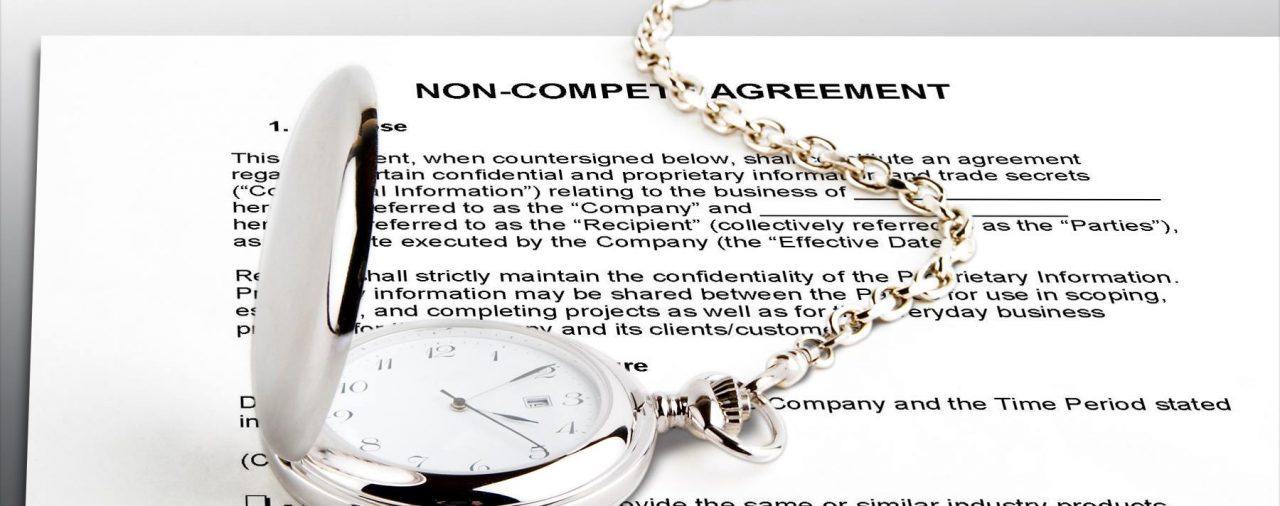Content Highlights
Do you have a non-compete time period that seems too long? Read more about when an unreasonably long time restriction renders a non-compete agreement unenforceable.
At Gardner Employment Law, we study the fine print of non-competes so our clients can protect their career mobility. If you need legal advice about an unreasonable non-compete time period, give us a call.
What is an Unreasonable Period of Time in a Non-Compete?
The particular activity and what is necessary to protect the employer’s business interests dictate what is a “reasonable” time restriction. In “When Is a Non-Compete Agreement Illegal?” we explained the elements required for a valid non-compete agreement. One requirement is that the departing employee can be prevented from working for a competing business only for a “reasonable” period of time.
Generally, the time period in a non-compete tracks whether the employee’s skills, the activity that the employee is prevented from doing, will be obsolete at the end of the restricted time period. In the IT industry, for example, a five-year non-compete likely would be unenforceable because computer technology changes daily, if not hourly. If a computer technician is prevented from working in IT for five years, for example, that employee may not be able to obtain any position in the field after the five years is completed.
When Is a Non-Compete Time Period Unreasonable?
Courts will hold a non-compete time period as unreasonable when the time restriction is indefinite. This was the situation in Dale v. Hoschar. Richard Dale owned an insurance company for which Tammy Hoschar worked as an independent contractor. Hoschar agreed that after leaving Dale’s company, she would not sell a competitor’s insurance to any of Dale’s policyholders. But the written agreement did not contain an ending date for the restriction. After Hoschar left the company, Dale brought suit for violation of her non-compete agreement. Horschar won. The appellate court held that the covenant not to compete “was indefinite in its time limitation” and “therefore unenforceable as a matter of law.”
Many Texas courts have held that two to five years is a reasonable time restriction in a non-compete agreement. In fact, it is rare when any court rules that a time period is not reasonable.
When Have Courts Held a Long Non-Compete Time Period to Be Reasonable?
Just because a non-compete time period prevents an employee from competing over a long period of time does not automatically render the non-compete unreasonable. Courts have ruled that a ten-year noncompete period is reasonable when it is related to the sale of a business.
In Heritage Operating, L.P. v. Rhine Bros., LLC, Kendall L. Rhine sold his company, Metro Lift Propane, to Heritage. As part of the sale, Rhine signed a non-compete agreeing not to compete with Heritage for up to 10 years. In the lawsuit over the non-compete, Rhine argued that any trade secrets he had learned would lose their value after five years and that the 10-year restriction was unreasonable. The court did not buy Rhine’s argument. Instead, the court focused on the value of the company’s goodwill that would be damaged by Rhine if the 10-year restriction was not enforced. The protection the employer gained from the non-compete outweighed Rhine’s attempt to use the goodwill that he had built and then sold to Heritage.
In short, it is difficult to win on the sole argument that the period of time is too long during which you cannot compete with your former employer. The time element may be considered, but usually other unreasonable restrictions must be found in the non-compete for it to be held unenforceable.
Are There Factors Other than the Time Period Favoring Employees in a Non-Compete Agreement?
In addition to a reasonable time period, the governing Texas statute, Section 15.50 of the Texas Business and Commerce Code, requires a non-compete to contain “reasonable” limitations on the geographical area and the scope of activities which the departing employee is prevented from doing. The statute requires a fourth consideration, that the restrictions are not greater than is necessary to protect the employer’s goodwill or other business interests.
A non-compete restriction must protect a specific aspect of the employer’s business, whether it is trade secrets, confidential information, or some other business interest. In Nguyen v. ABLe Communs., Inc., the court held that unless the restriction “bears some relation to the activities of the employee,” the restriction is unreasonable. A non-compete can’t impose a limitation just because the former employer wants to prevent the employee from working in the same industry. Non-compete limitations must be calculated to protect an employer’s legitimate business interests.
When courts analyze these four factors – time, geography, activities, and business interests – to decide whether to enforce a non-compete, the outcome always hinges on the factual circumstances. Many scholars believe that courts are more inclined to favor employees in our current environment when so many employees still are out of work.
Safeguard Your Career from Unreasonable Non-Competes
We highly value any attorney-client relationship because we want to ensure that you have continued employment in your field. If you think your non-compete time period might be unreasonable, it is worth reviewing with an expert non-compete lawyer. Fill out our contact form, and we will be glad to talk with you.

